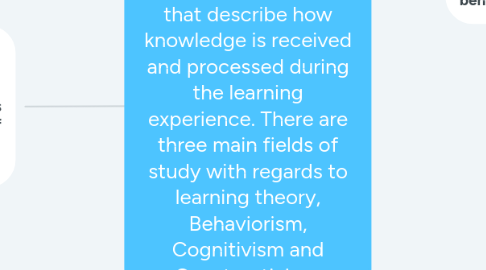Mind Map on Learning Theories. A learning theory is a frameworks that describe how knowledge is received and processed during the learning experience. There are three main fields of study with regards to learning theory, Behaviorism, Cognitivism and Constructivism.
da Christian Gray


